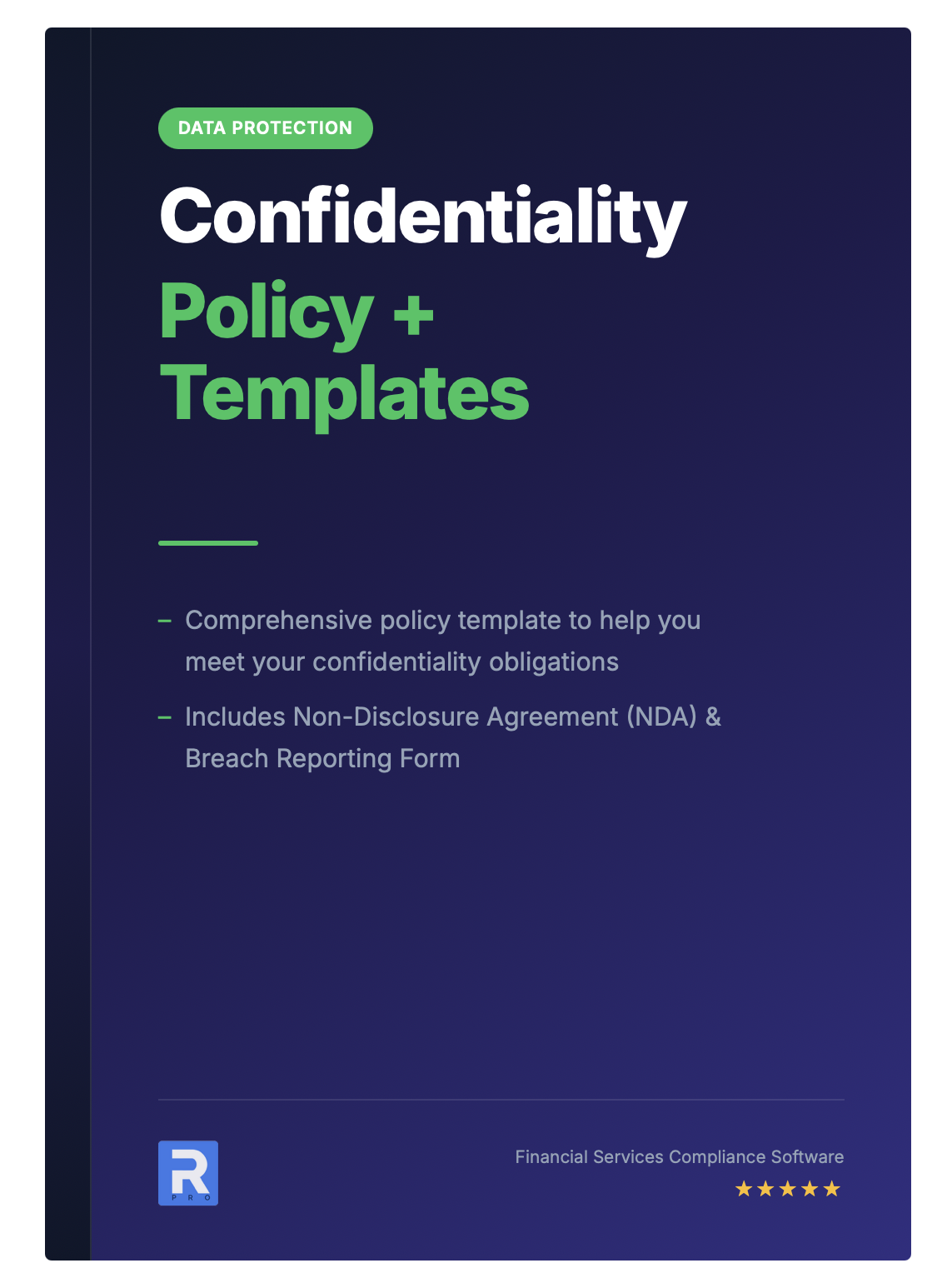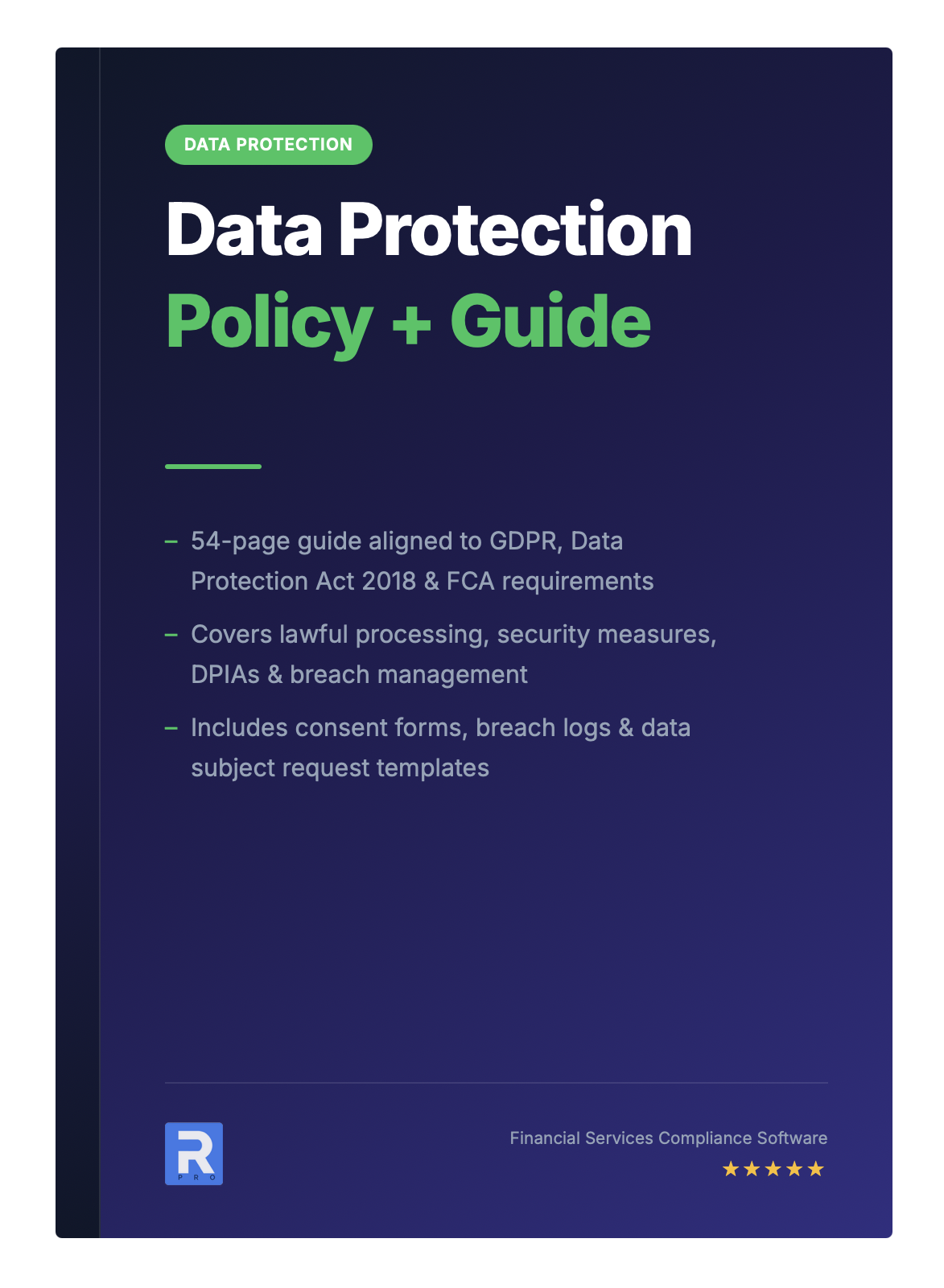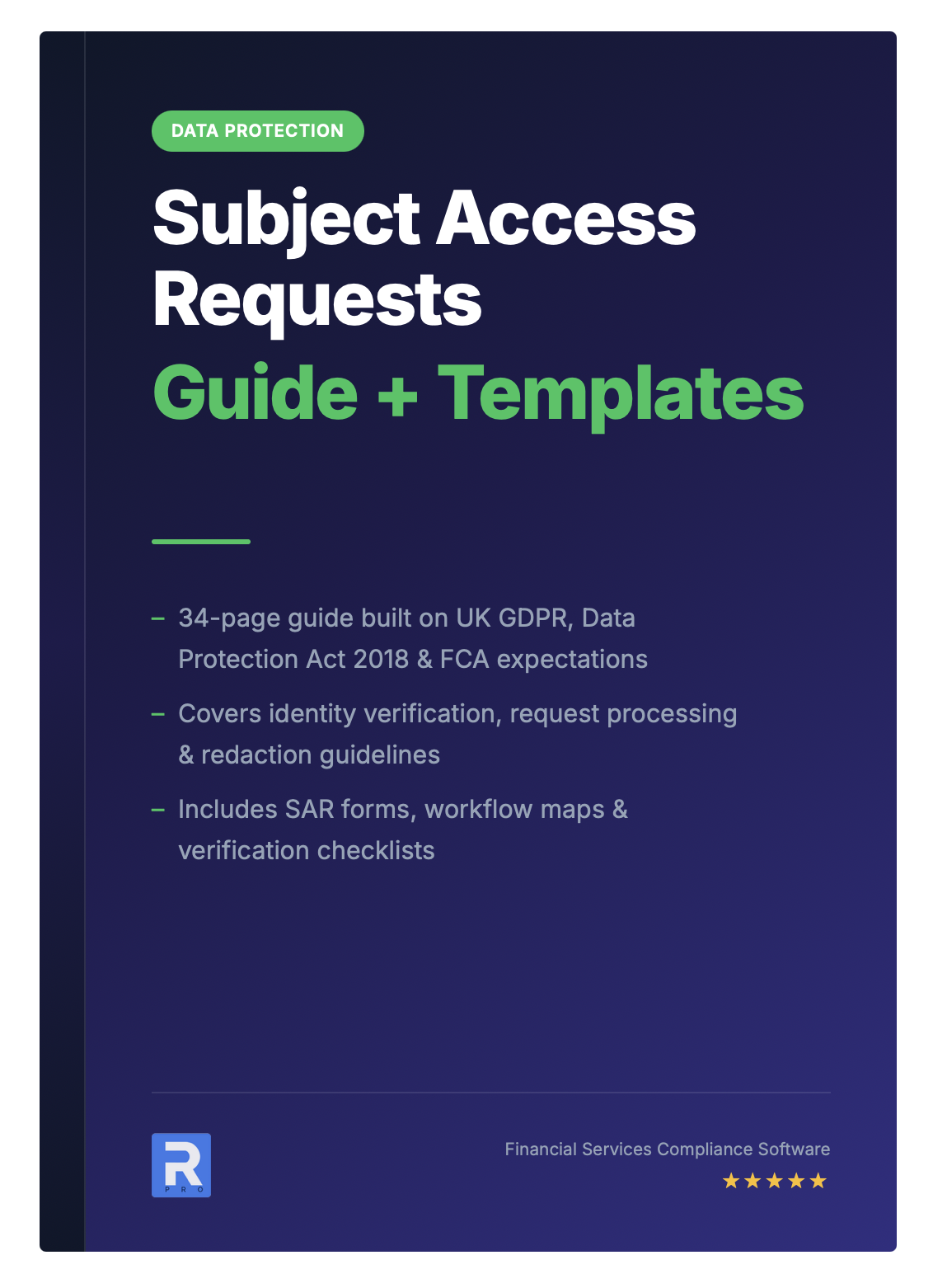 Image 1 of 3
Image 1 of 3

 Image 2 of 3
Image 2 of 3

 Image 3 of 3
Image 3 of 3




Confidentiality Policy + Templates
This 52-page Confidentiality Policy template establishes clear guidelines for handling sensitive information, ensuring compliance with stringent UK regulations, including the UK GDPR, the Data Protection Act 2018, and the Data (Use and Access) Act 2025.
This ensures avoidance of severe penalties, such as fines of up to 4% of global turnover or criminal sanctions. It safeguards personal and organisational data from breaches, unauthorised disclosures, and misuse, thereby mitigating the risks of financial loss, reputational damage, and legal liabilities, while fostering a culture of accountability, ethical practices, and trust among employees, clients, and partners.
Includes:
Legal and Regulatory Framework
Principles of Confidentiality
Justification for Handling Confidential Information
Minimising Risks in Data Processing
Consent and Lawful Bases for Processing
Transparency and Accountability
Roles and Responsibilities
Data Protection Officer (DPO) and Caldicott Guardian (where applicable)
Handling Confidential Information
Identification and Classification of Confidential Information
Collection and Acquisition of Information
Secure Storage and Access Controls
Sharing, Disclosure, and Transfer of Information
Use in Remote or Mobile Working Environments
Disposal and Destruction of Information
Specific Guidelines for High-Risk Scenarios
Dealing with Special Category Data (e.g., Health, Ethnic Origin)
Handling Requests for Information (e.g., Subject Access Requests)
Whistleblowing and Public Interest Disclosures
Managing Conflicts of Interest and Insider Information
Confidentiality in Mergers, Acquisitions, or Third-Party Engagements
Training, Awareness, and Culture
Incident Management and Breach Response
Reporting and Record-Keeping of Incidents
Monitoring, Auditing, and Continuous Improvement
Confidentiality Do’s and Don’ts
Summary of Key Legislation and Codes of Practice
Template for Confidentiality Agreement/Non-Disclosure Agreement (NDA)
Breach Reporting Form
This 52-page Confidentiality Policy template establishes clear guidelines for handling sensitive information, ensuring compliance with stringent UK regulations, including the UK GDPR, the Data Protection Act 2018, and the Data (Use and Access) Act 2025.
This ensures avoidance of severe penalties, such as fines of up to 4% of global turnover or criminal sanctions. It safeguards personal and organisational data from breaches, unauthorised disclosures, and misuse, thereby mitigating the risks of financial loss, reputational damage, and legal liabilities, while fostering a culture of accountability, ethical practices, and trust among employees, clients, and partners.
Includes:
Legal and Regulatory Framework
Principles of Confidentiality
Justification for Handling Confidential Information
Minimising Risks in Data Processing
Consent and Lawful Bases for Processing
Transparency and Accountability
Roles and Responsibilities
Data Protection Officer (DPO) and Caldicott Guardian (where applicable)
Handling Confidential Information
Identification and Classification of Confidential Information
Collection and Acquisition of Information
Secure Storage and Access Controls
Sharing, Disclosure, and Transfer of Information
Use in Remote or Mobile Working Environments
Disposal and Destruction of Information
Specific Guidelines for High-Risk Scenarios
Dealing with Special Category Data (e.g., Health, Ethnic Origin)
Handling Requests for Information (e.g., Subject Access Requests)
Whistleblowing and Public Interest Disclosures
Managing Conflicts of Interest and Insider Information
Confidentiality in Mergers, Acquisitions, or Third-Party Engagements
Training, Awareness, and Culture
Incident Management and Breach Response
Reporting and Record-Keeping of Incidents
Monitoring, Auditing, and Continuous Improvement
Confidentiality Do’s and Don’ts
Summary of Key Legislation and Codes of Practice
Template for Confidentiality Agreement/Non-Disclosure Agreement (NDA)
Breach Reporting Form





